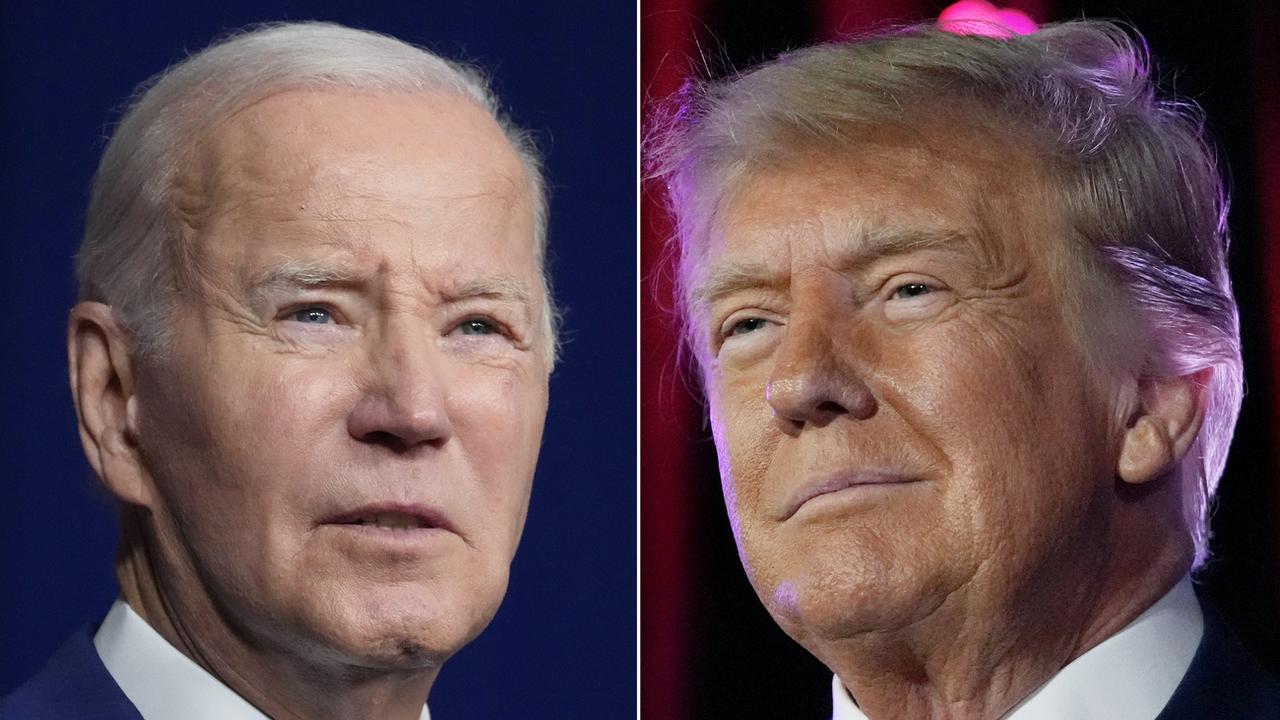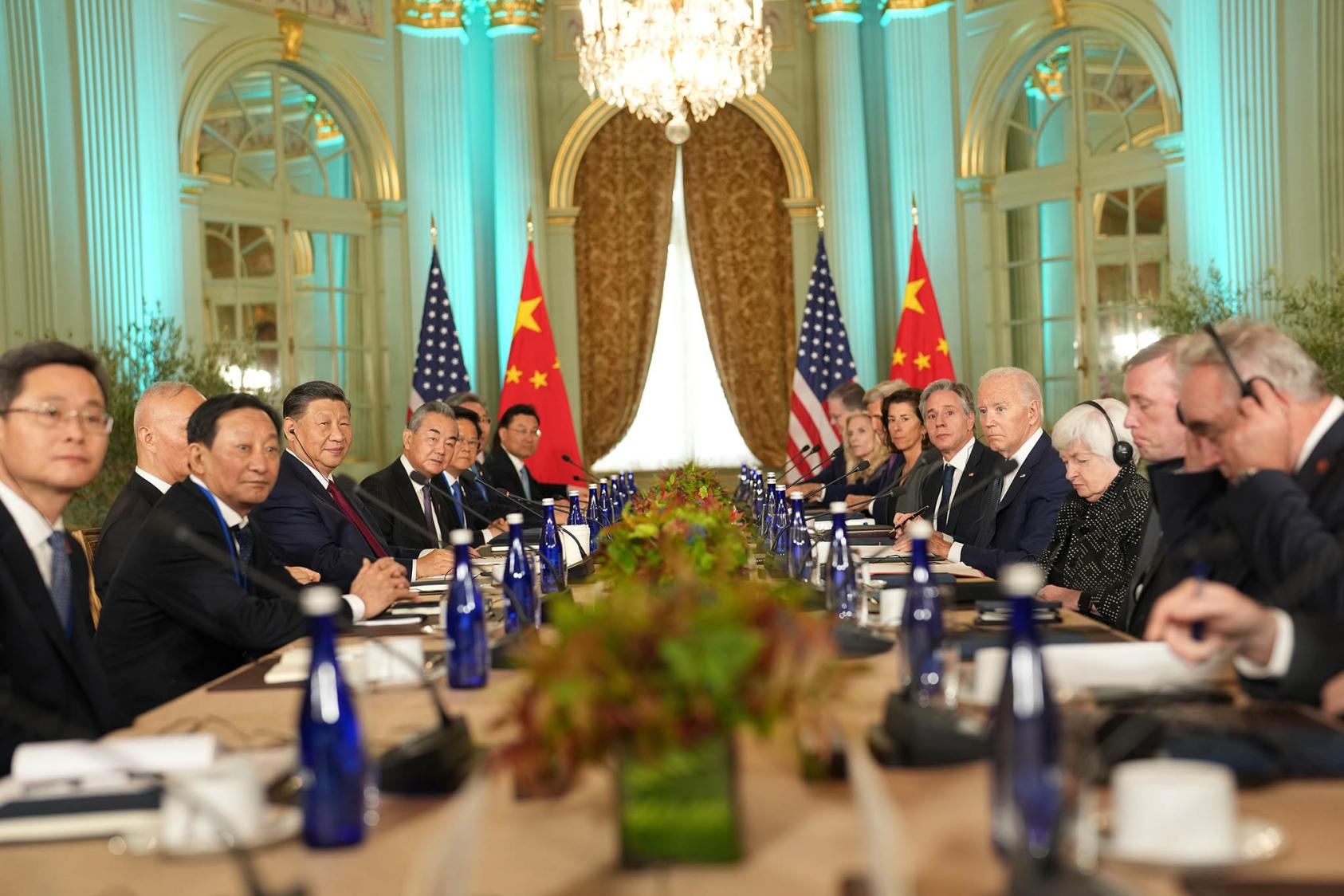
Eight months before the American presidential election, Joe Biden and Donald Trump in a duel
How can we explain the absence of an alternative candidate for the American presidential election?
Joe Biden and his rival Donald Trump won enough delegates on Tuesday to secure their place as their party's nominees in November's US presidential election.
Eight months before the American presidential election, the duel seems decided in advance: Donald Trump for the Republicans and Joe Biden for the Democrats. But how can we explain the absence of alternative candidates and why do small parties have such difficulty breaking through in the United States? Explanations in three points.
1 - A question of financing
American presidential campaigns are among the most expensive in the world. To make themselves known and therefore stand out, candidates must have considerable financial resources. However, the “small candidates” who belong neither to the Republican Party nor to the Democratic Party are often deprived of this.
The presidential election thus exacerbates the place of big fortunes in the political game. Billionaires discreetly fund the coffers of Democrats or Republicans with millions of dollars, the idea being to ensure a certain influence with the potentially elected candidate. Since 2010, many voices have been raised to denounce this system which would “de facto” prevent the emergence of a third party, due to lack of financial support.
In a country based on profitability, donors have no interest in investing in small parties
Romuald Sciora, director of the IRIS United States Political and Geostrategic Observatory
“The Democratic Party and the Republican Party are so institutionalized that most big donors automatically finance these parties. There is therefore no more room for small candidates to emerge,” Romuald Sciora, director of the Observatory, explains to RTSinfo politics and geostrategy of the United States from IRIS. Furthermore, he adds, in a country where everything is based on profitability, donors have no interest in investing in small parties.
Furthermore, with the lifting of funding limits, the importance of private donors grows with each election. In 2020, Forbes magazine estimated the total contributed by the country's 20 largest donors at $2.3 billion. Joe Biden alone spent more than a billion dollars on his campaign that same year compared to around 808 million for Donald Trump. But in 2008, Barack Obama had already exploded the counters with a campaign costing more than 750 million dollars, built solely on private funds.
2 - A system limited to two parties
The two-party political system also explains the absence of emerging candidates. Unlike several countries such as Switzerland or France, "small parties" are very little considered in the United States, whether by donors, the media or citizens themselves.
However, there are many more candidates than we think who are running for the 2024 American presidential election. Their chances, however, remain slim, with the electoral system only favoring the major parties. During the last elections in 2020, independent candidates shared barely 1.62% of the votes. The Libertarian Party obtained 1.18% of the vote and the Green Party 0.26% of the vote.
The lack of a middle party also implies that moderate Democrats and Republicans sometimes share more similarities with each other than extremist members of their own party. “As a result, no one has an interest in separating from their party to join a smaller and less influential party, lacking financial support,” explains Romuald Sciora.
As of October 28, 2020, the Federal Election Commission (FEC) listed 1,224 candidates. Of these, 325 claimed to be Democrats, 164 Republicans, 35 libertarians, 23 ecologists and the rest are independents. However, given that the FEC only invites to the presidential debates candidates credited with 15% of voting intentions, it is more difficult for candidates from third parties to get people talking about them.
Among the "third party" candidates who are still in the race, we find Robert Francis Kennedy Jr. who is running as an independent. A lawyer specializing in environmental issues, he could siphon valuable votes from Biden and Trump. In the "Green Party" (editor's note: environmentalist party), one of the best-known third parties in the United States, it is Jil Stein who is running.
In the United States, former Republicans and Democrats form a third, centrist party
3 - Cultural barriers
American culture also has something to do with it, believes the United States specialist. The latter often promotes caution and compliance. Voters are often drawn to candidates who embody stability and familiarity, making it difficult for outsiders to break through. “This two-party system is anchored in the American mentality. Voting for another party is almost something dubious, fishy.”
Furthermore, in a country where the media play a crucial role in the formation of public opinion, notoriety and media visibility are determining factors in the presidential race.
By inviting a small candidate from a third party, television channels are sure not to have advertisers
Romuald Sciora, director of the Institute of International and Strategic Relations (IRIS)
However, given that American television channels do not receive federal aid, they depend on advertising revenue. They therefore prefer to focus on already well-established candidates rather than illustrious unknowns. "We're all chasing the stars and I'm not just talking about the media. But by inviting a small candidate, from a third party and therefore without funding, the channels are sure not to have advertisers." This low media visibility therefore limits their ability to increase their support and broaden their electoral base.
Finally, for Romuald Sciara, it is difficult to speak of a "true democratic system" in the United States given that it is governed by only two parties. “They exercise a monopoly and do everything to nip in the bud what could emerge on the right or the left. This can be considered an attack on democracy and the rights of voters.”
Leave a Reply












0 Comment